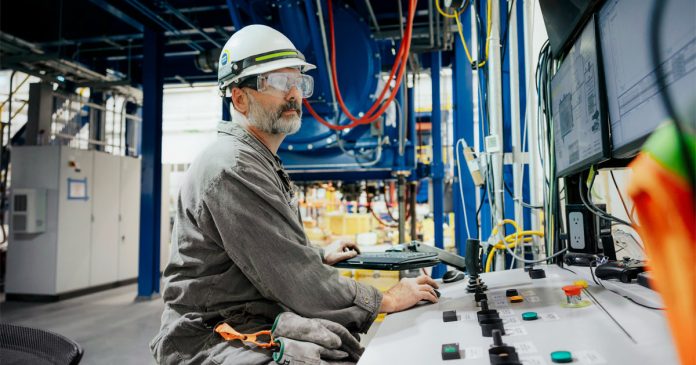Apple, a leader in technology and innovation, has made a monumental announcement: it will increase its investment in the United States to $600 billion over the next four years. This figure includes a newly introduced American Manufacturing Program (AMP), aimed at expanding domestic production and significantly boosting local economies, particularly in key states such as Texas, California, and Kentucky.
Tim Cook, Apple’s CEO, emphasized the company’s commitment to American manufacturing by stating, “Today, we’re proud to increase our investments across the United States to $600 billion over four years and launch our new American Manufacturing Program.” This ambitious initiative will not only enhance Apple’s manufacturing capabilities but also create thousands of jobs across the country. With a focus on research and development, silicon engineering, and software development, the program aims to directly hire 20,000 individuals in the U.S. in the next four years.
The AMP will play a pivotal role in increasing local production capabilities through collaborations with significant companies. For example, Apple plans to work with Corning to expand the production of durable glass for iPhones and Apple Watches at a facility in Harrodsburg, Kentucky. This development marks a noteworthy move towards making sure that all iPhones and devices sold globally will be equipped with glass made in America.
Apple’s robust partnership network already includes thousands of suppliers supporting over 450,000 jobs nationwide. The new program will likely enhance these numbers as Apple aims to fund advancements in critical technologies, from rare earth magnets produced by MP Materials in Texas to the development of silicon supply chains within the U.S. Apple’s chief operating officer, Sabih Khan, highlighted the importance of American resources by stating, “We want America to lead in this critical industry.”
Small business owners stand to gain significantly from this expansion. The increased manufacturing in the U.S. can create ripple effects across the economy, stimulating demand for local suppliers and services. As Apple ramps up its domestic production, small businesses specializing in parts, materials, logistics, and technology may find new opportunities to collaborate or serve as subcontractors. For instance, those involved in advanced manufacturing education might explore partnerships with Apple’s new Manufacturing Academy, which aims to offer consultations to small businesses looking to integrate advanced manufacturing practices and AI technologies.
However, the initiative is not without challenges. Small business owners may face hurdles such as the need for capital to innovate or scale operations to meet Apple’s rigorous production standards. The technological demands of modern manufacturing, particularly in areas like AI and silicon production, could be daunting. Additionally, as Apple’s focus shifts to domestic suppliers, those unable to pivot quickly or meet the evolving market demands may find themselves at a competitive disadvantage.
As Apple expands its manufacturing footprint in various states, new facilities are set to arise, including a $100 million factory in Houston supporting server production and an advanced data center in Maiden, North Carolina. These expansions not only contribute to job creation in the tech sector but also INCREASE local opportunities for small businesses around construction, maintenance, and supply chain logistics.
Moreover, Apple’s new partnerships with companies like Texas Instruments and GlobalFoundries signal a long-lasting investment in U.S. tech capabilities. For instance, the collaboration with Texas Instruments includes expanding installation of crucial semiconductor tools in facilities across states, promising enhanced local job prospects and increased production power.
In a sector increasingly modelled around global supply chains, Apple’s announcement signifies a critical shift. The transition to more localized manufacturing may benefit small businesses by reducing dependencies on international supply chains and the uncertainties they can bring. Yet, success will depend on small business owners’ ability to adapt and seize emerging opportunities.
For those keen to remain competitive as the landscape evolves, it’s essential to stay informed and agile. Building relationships with larger companies like Apple might yield fruitful partnerships, while investments in technology and training can enhance local operational capacities.
Apple’s initiative showcases the positive potential that large corporations have in driving economic growth and innovation at a local level. As this unfolds, small business owners across diverse industries should remain vigilant, ready to adapt, and prepared to capitalize on the advantages provided by this ambitious new program.
For further details, see the original announcement here.
Image Via Apple



